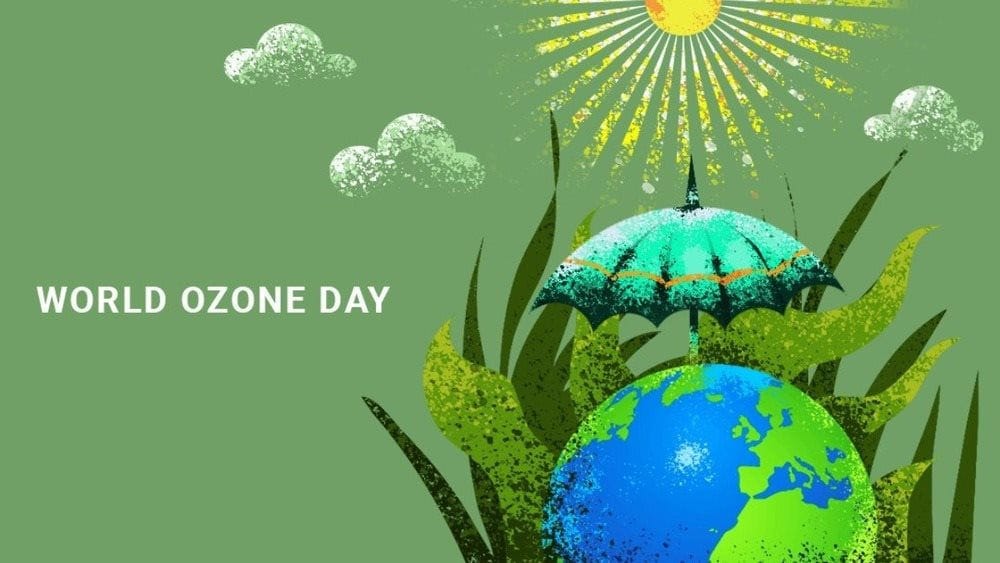On September 15, 2025, in Hanoi, the Ministry of Agriculture and Environment organized a national workshop to celebrate International Day for the Preservation of the Ozone Layer. The event’s theme was “Ozone Layer Protection Activities Towards Green Transition: Fostering Intergovernmental and Public-Private Cooperation.” It attracted the participation of international organizations such as the World Bank, UNEP, UNDP, ADB, GGGI, GIZ, and a large number of experts, research institutes, and businesses in the environmental sector.
This event was not only an occasion to look back on the international community’s nearly 40-year journey with the Vienna Convention and the Montreal Protocol but also an opportunity for Vietnam to affirm its pioneering role, strong commitments, and specific actions in protecting the global climate.
A Journey of Affirming Commitments
In his opening speech, Deputy Minister of Agriculture and Environment Le Cong Thanh emphasized:
“After nearly 40 years, the world has eliminated 99% of ozone-depleting substances. If we stay on this path, the ozone layer will recover to its 1980 level by around 2040. This success shows that science, policy, and international cooperation can bring about great changes for the survival of humanity.”
Vietnam joined the Vienna Convention and the Montreal Protocol in 1994. Over three decades, Vietnam has:
- 2010: Completely phased out CFCs, Halons, and CTCs.
- 2015: Ceased the use of pure HCFC-141b in foam production, only using Methyl Bromide for agricultural quarantine.
- 2025: Prevented the emission of approximately 240 million tons of CO₂ equivalent, a figure that experts consider a significant contribution to global emission reduction efforts.
According to statistics, from 2024 to 2045, phasing out ozone-depleting substances could help Vietnam further reduce 11 million tons of CO₂ equivalent.
Expert Viewpoints: Vietnam is on the Right Track
Ms. Tina Chondraki Birmpili, Head of the Executive Committee of the Multilateral Fund for the Implementation of the Montreal Protocol, commented:
“Vietnam is one of the countries that early approved the Kigali Amendment Action Plan, demonstrating a strong commitment to energy efficiency and sustainable cooling technology. Vietnam’s efforts not only have a domestic impact but also spread to more than 200 socio-economic sectors.”
From a domestic perspective, Associate Professor Dr. Nguyen The Chinh, former Director of the Institute of Strategy and Policy on Natural Resources and Environment, stated:
“Protecting the ozone layer is not just an environmental issue; it is also linked to carbon market opportunities. If utilized well, Vietnam can become a bright spot in the region for attracting green finance and supporting businesses in technological innovation.”
Practical Impacts in Vietnam
In practice, policies to phase out ozone-depleting substances have brought many benefits:
- Refrigeration and air-conditioning businesses: By converting technology, recycling, and collecting refrigerants, businesses not only comply with international commitments but also reduce energy costs and enhance export competitiveness.
- Agriculture and plant quarantine: Limiting the use of Methyl Bromide and switching to alternative solutions helps reduce health risks for farmers while protecting soil ecosystems.
- Consumers: Benefit from environmentally friendly cooling equipment that has a longer lifespan and lower operating costs.
A UNEP expert at the workshop emphasized:
“In the context of climate change, protecting the ozone layer is a ‘two-for-one benefit’: it both reduces greenhouse gases and protects public health. Vietnam is a testament to this successful combination.”
From Science to Global Action
Vietnam has integrated ozone layer protection into the 2020 Law on Environmental Protection and a series of legal documents, such as Decree 06/2022 and Decree 119/2025. This is an important legal foundation for mobilizing international resources and creating favorable conditions for businesses to transition to green technologies.
This year’s workshop also included in-depth discussion sessions and an exhibition of advanced refrigeration and air-conditioning technologies, showing the connection between policy, businesses, and the scientific community.
Conclusion: Vietnam’s Pioneering Role
After nearly 40 years of implementing the Montreal Protocol, the world has witnessed a rare success in the history of environmental cooperation. With its clear commitments and concrete actions, Vietnam has become a bright spot in Asia.
As Ms. Tina Birmpili affirmed: “Phasing out ozone-depleting substances is not just a national responsibility but an act of protecting the lives of all humanity.”
The message from Vietnam on the 40th anniversary of the Vienna Convention is clear: from science to global action, international cooperation and green transition are the inevitable path for a sustainable future.
According to vneconomy.vn


Related Posts
Vietnamese Lunar New Year A Cultural Beauty That Honors Ancestral Roots And The Sacred New Year’s Eve
HAPPY LUNAR NEW YEAR – VMRF
Repealing the 2009 Endangerment Finding: The First Move in a Long Planned Effort to Rebuild America’s Metallurgical Base
List of Permitted Scrap Imports: A Policy Adjustment to Tighten Environmental Control and Reshape Industrial Raw Material Supply Chains
Tightening Scrap Temporary Import and Re-export: Vietnam Proactively Blocks the Risk of Becoming a Global “Dumping Ground”
Import Policy Trends for Industrial Metal Scrap and Metal-Bearing Waste in Southeast Asia